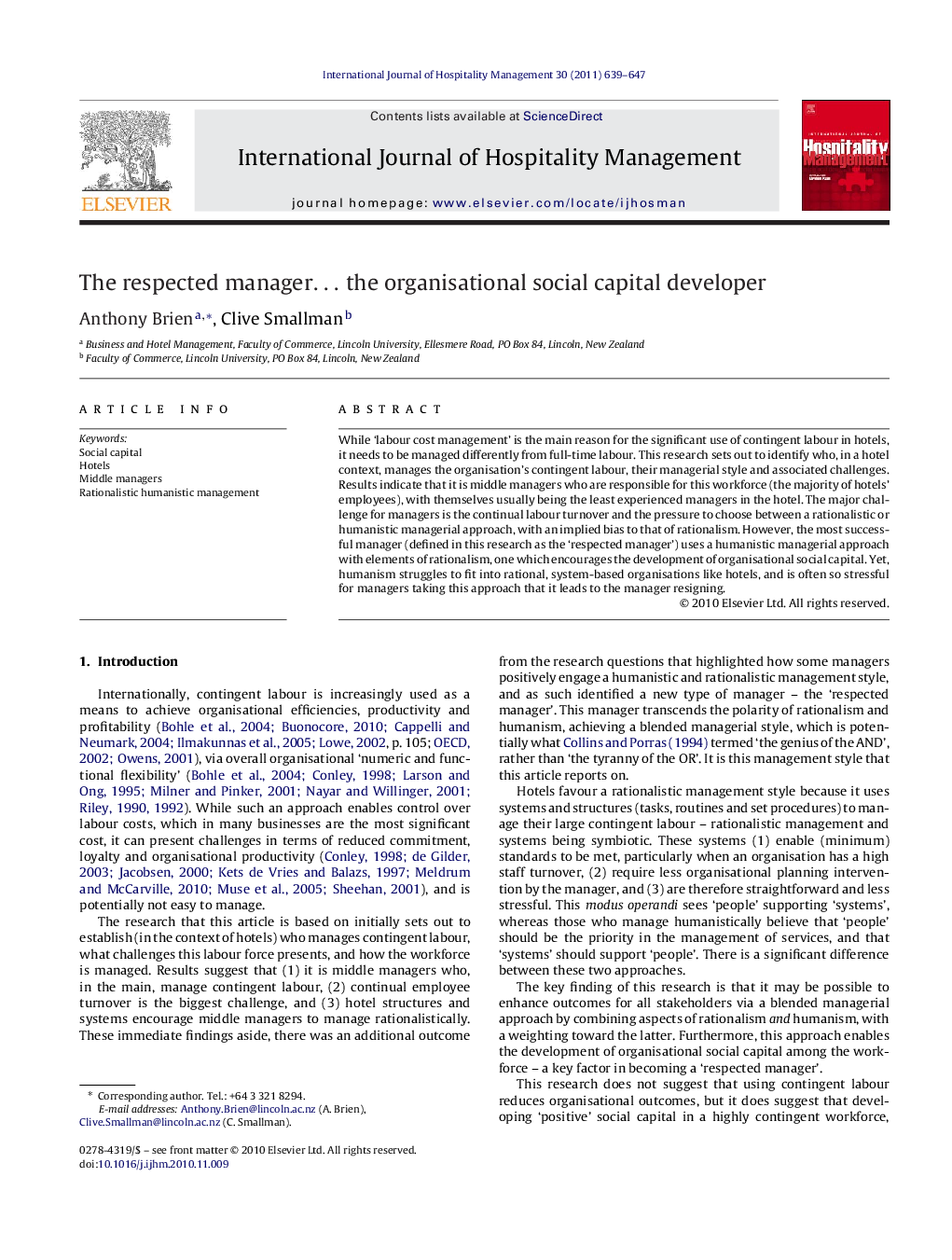| Article ID | Journal | Published Year | Pages | File Type |
|---|---|---|---|---|
| 1009966 | International Journal of Hospitality Management | 2011 | 9 Pages |
While ‘labour cost management’ is the main reason for the significant use of contingent labour in hotels, it needs to be managed differently from full-time labour. This research sets out to identify who, in a hotel context, manages the organisation's contingent labour, their managerial style and associated challenges. Results indicate that it is middle managers who are responsible for this workforce (the majority of hotels’ employees), with themselves usually being the least experienced managers in the hotel. The major challenge for managers is the continual labour turnover and the pressure to choose between a rationalistic or humanistic managerial approach, with an implied bias to that of rationalism. However, the most successful manager (defined in this research as the ‘respected manager’) uses a humanistic managerial approach with elements of rationalism, one which encourages the development of organisational social capital. Yet, humanism struggles to fit into rational, system-based organisations like hotels, and is often so stressful for managers taking this approach that it leads to the manager resigning.
Research highlights▶ Overall management of contingent labour is the responsibility of middle managers. ▶ Middle managers are the least experienced yet manage large numbers of staff. ▶ Humanistic management struggles to exist in a systems based organisation. ▶ Middle managers are under significant stress and often resign. ▶ Respected managers are those who blend rationalism with humanism.
